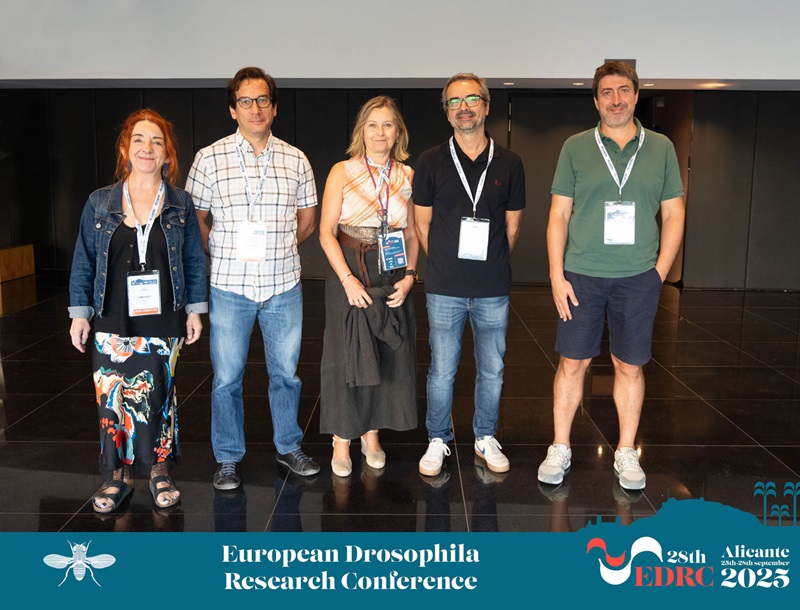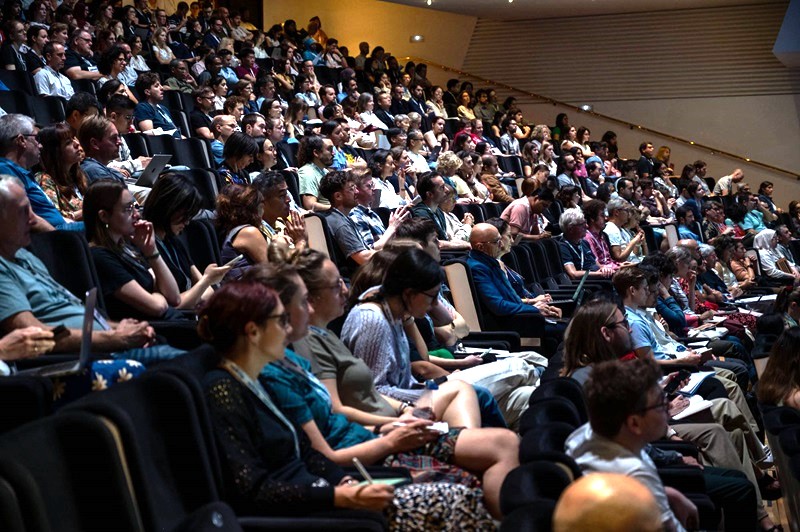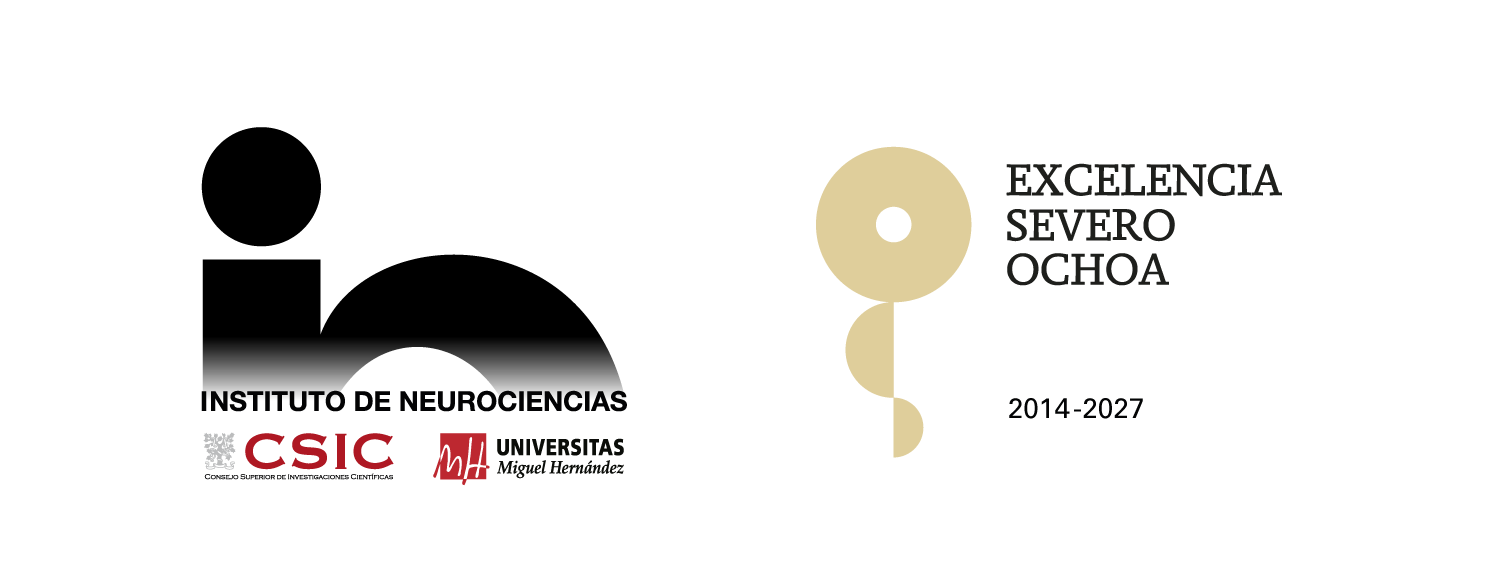More than 750 researchers meet in Alicante for the XXVIII edition of the European Drosophila Research Conference (EDRC)
29 de September de 2025

Photo: Local organizing committee of the 28th EDRC. From left to right: Ana Carmena, Juan Antonio Sánchez-Alcañiz, María Domínguez, Javier Morante, and José Carlos Pastor Pareja. Source: IN CSIC-UMH.
From September 25 to 28, Alicante hosted the XXVIII EDRC, the European Drosophila Research Conference, dedicated to Drosophila melanogaster, the fruit fly, an essential model organism for studying key processes in human health and disease. The congress, held at the Auditorio de la Diputación de Alicante (ADDA), brought together more than 750 scientists from over 40 countries who shared the latest scientific advances on major topics in contemporary biomedicine: cancer, the brain, immunology, metabolism and healthy aging, evolution, and the mechanisms that explain how organisms form and regenerate.
The program included 12 plenary lectures, more than 100 talks in 15 thematic sessions, workshops, and two poster sessions, with a strong participation of early-career researchers. This consolidates the event as a reference point for the future of biomedical science in Europe and positions Alicante as an international hub for cutting-edge research.
Among the most prominent plenary speakers were Cassandra Extavour (Harvard University, USA), a leading figure in developmental biology; Maria Cristina Gambetta (University of Lausanne, Switzerland), a specialist in transcription and chromatin; Lucía Prieto-Godino (Francis Crick Institute, UK), expert in physiology and metabolism; Yulong Li (Peking University, China), renowned for his methodological innovations in neuroscience; Marta Llimargas (IBMB-CSIC), expert in organogenesis; and Rubén Artero (University of Valencia), scientist and entrepreneur.
“We are delighted with the great turnout and the outstanding scientific level of this edition”, said María Domínguez, chair of the local organizing committee and Research Professor at the Spanish National Research Council (CSIC) at the Institute for Neuroscience (CSIC-UMH), a joint center of CSIC and the Miguel Hernández University (UMH) of Elche. “The congress has not only been a space to share cutting-edge knowledge and highlight emerging talent, but also an opportunity to strengthen international collaboration”.

Attendees at the 28th EDRC, held at the ADDA from September 25 to 28. Source: IN CSIC-UMH
The meeting also served to raise awareness about the funding challenges threatening the continuity of FlyBase, the main reference database for the research community, and the urgent need to support the sustainability of this essential resource.
Alongside Domínguez, the organizing committee included researchers from the Institute for Neuroscience: Javier Morante, José Carlos Pastor Pareja, Juan Antonio Sánchez-Alcañiz, and Ana Carmena, who lead teams working with this model in high-impact projects.
Drosophila melanogaster is a key model for understanding complex biological processes such as development, the neurological basis of behavior, and disease. For more than a century, its use has enabled fundamental discoveries in genetics, development, and physiology, with direct impact on human health. Notably, twelve Nobel Prizes have recognized research conducted with this organism.
The European Drosophila Research Conference (EDRC), held biennially in different European cities, is the main international meeting point for this scientific community. After Barcelona (2013), Heidelberg (2015), London (2017), Lausanne (2019), and Lyon (2023), the selection of Alicante as the 2025 host reinforces the importance of the event.
The congress was supported by the Severo Ochoa Excellence Program of the Institute for Neuroscience (CSIC-UMH), the Miguel Hernández University, the Spanish State Research Agency - Ministry of Science, Innovation and Universities, the European Regional Development Fund (ERDF) of the European Union, the Conselleria d’Educació of the Generalitat Valenciana, and the Alicante City Council Tourism Department. The EDRC 2025 also received support from several biotechnology companies.
Source: Institute for Neurosciences CSIC-UMH (in.comunicacion@umh.es)

 Español
Español